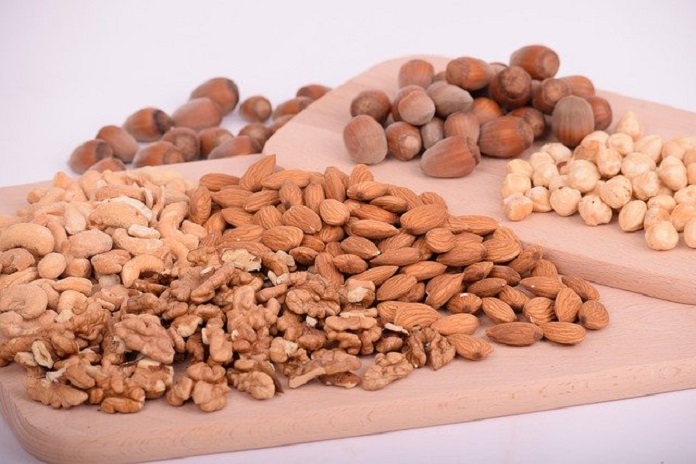A worldwide research study investigated the effects of eating nuts on cardiovascular disease and death.
Altering dietary intake is well known to have a positive impact on cardiovascular disease. Several studies have identified that replacing saturated fats with unsaturated fats or plant protein can lower cholesterol levels and lower the risk of cardiovascular disease. Nuts predominantly contain unsaturated fats and plant protein, among other healthy components, and have been shown to reduce the risk of cardiovascular disease in previous studies. However, focused in Europe and the United States, these studies do not give a global picture or include worldwide low-middle income countries.
Published in the American Journal of Clinical Nutrition, researchers used data from the Prospective Urban Rural Epidemiology (PURE) study to analyse the effect of nut intake on cardiovascular disease and morbidity. The PURE study is a large, multinational study of adults aged 35-70 years from sixteen countries on five continents. 124, 329 participants were included in the study, excluding participants that were not questioned about nut intake.
Standardised food frequency questionnaires were used to collect data on the consumption of; almonds, peanuts, walnuts, cashews, pistachios, hazelnuts, and chestnuts. 99.5% of global nut consumption is made up from this collection of nut types. Data was analysed on death from cardiovascular causes and nonfatal myocardial infarction, stroke, and heart failure. Cholesterol levels, heart rate, fasting blood glucose and blood pressure readings were also recorded. The participants were followed from the day they returned the food frequency questionnaire until a cardiovascular event was diagnosed, or the end of the study period, whichever occurred first. Participants were followed for an average of 9.5 years until July 2019.
The study results show that higher nut intake is associated with lower mortality risk from both cardiovascular and non-cardiovascular causes.
This consolidates results from previous research which has shown a lower risk of death associated with a higher nut intake in Europe and the United States. However, the PURE study is global, including sixteen different countries of varying income levels giving a broader perspective. Although varying factors such as; age, sex, location, education level, lifestyle, diet, and family history were taken into consideration when calculating the results, the price and availability of nuts must be considered. Nuts are often associated with a healthier lifestyle, increased wealth, and the ability to purchase healthier foods, which may have affected the results.
The benefit of consuming nuts is thought to be due to several factors. They are high in energy but low in saturated fat as well as containing no trans-fats (which are associated with negative health effects). They contain plant protein, fibre, minerals, and bioactive compounds (that promote good health). They are also often used to replace sugary snacks when dietary changes are made and are recommended in many guidelines. The American Heart Association recommends nut consumption as part of a diet to prevent high blood pressure. Canada’s Food Guide recommends nuts and seeds without added sugars, fats, and sodium as a portion of protein food, and the 2010 Dietary Guidelines for Americans state that nuts are a “nutrient-dense, high-fibre food and a good source of protein,”.
The results from this study suggest that increasing the intake of various different types of nuts, as part of a healthy diet can be beneficial.
Written by Helen Massy, BSc.
References:
de Souza, R., Dehghan, M., Mente, A., Bangdiwala, S., Ahmed, S., Alhabib, K., Altuntas, Y., Basiak-Rasała, A., Dagenais, G., Diaz, R., Amma, L., Kelishadi, R., Khatib, R., Lear, S., Lopez-Jaramillo, P., Mohan, V., Poirier, P., Rangarajan, S., Rosengren, A., Ismail, R., Swaminathan, S., Wentzel-Viljoen, E., Yeates, K., Yusuf, R., Teo, K., Anand, S. and Yusuf, S., 2020. Association of nut intake with risk factors, cardiovascular disease, and mortality in 16 countries from 5 continents: analysis from the Prospective Urban and Rural Epidemiology (PURE) study. The American Journal of Clinical Nutrition,.
Food-guide.canada.ca. 2020. Eat Protein Foods – Canada’S Food Guide. [online] Available at: <https://food-guide.canada.ca/en/healthy-eating-recommendations/make-it-a-habit-to-eat-vegetables-fruit-whole-grains-and-protein-foods/eat-protein-foods/> [Accessed 30 May 2020].
Lichtenstein, A., Appel, L., Brands, M., Carnethon, M., Daniels, S., Franch, H., Franklin, B., Kris-Etherton, P., Harris, W., Howard, B., Karanja, N., Lefevre, M., Rudel, L., Sacks, F., Van Horn, L., Winston, M. and Wylie-Rosett, J., 2006. Diet and Lifestyle Recommendations Revision 2006. Circulation, 114(1), pp.82-96.
US Department of Agriculture & US Department of Health and Human Services. Dietary Guidelines for Americans. Washington, DC, 2010.
Image by ExplorerBob from Pixabay



